As a betta fish owner, you are probably aware of the common health issues that can arise in your pet. Two of the most discussed illnesses amongst betta owners are bloating and dropsy.
Though they may seem similar, their causes, symptoms, and treatment differentiation differ. Here, we differentiate how to differentiate between a bloated betta vs dropsy.
We’ll cover all the various symptoms that can help you identify which illness your betta is suffering from. We’ll also provide tips on keeping your betta healthy and preventing these illnesses from happening altogether. So, let’s dive in.
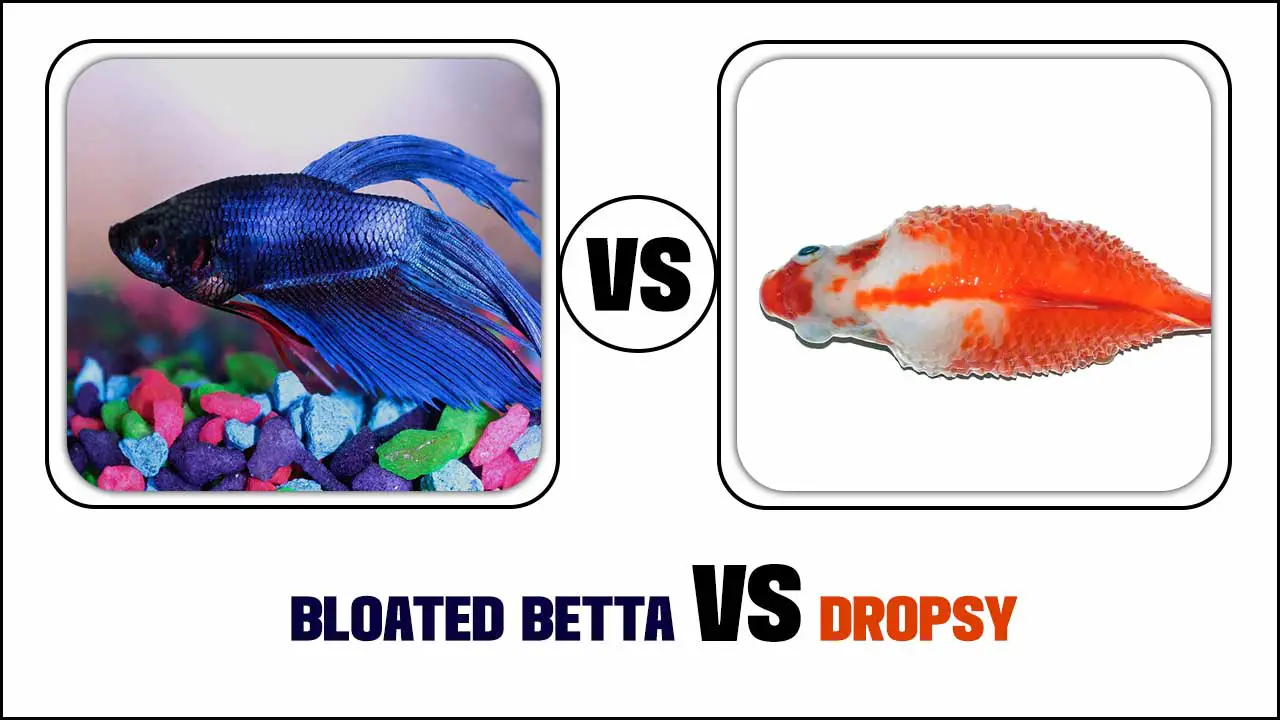
How To Differentiate Between A Bloated Betta Vs Dropsy?
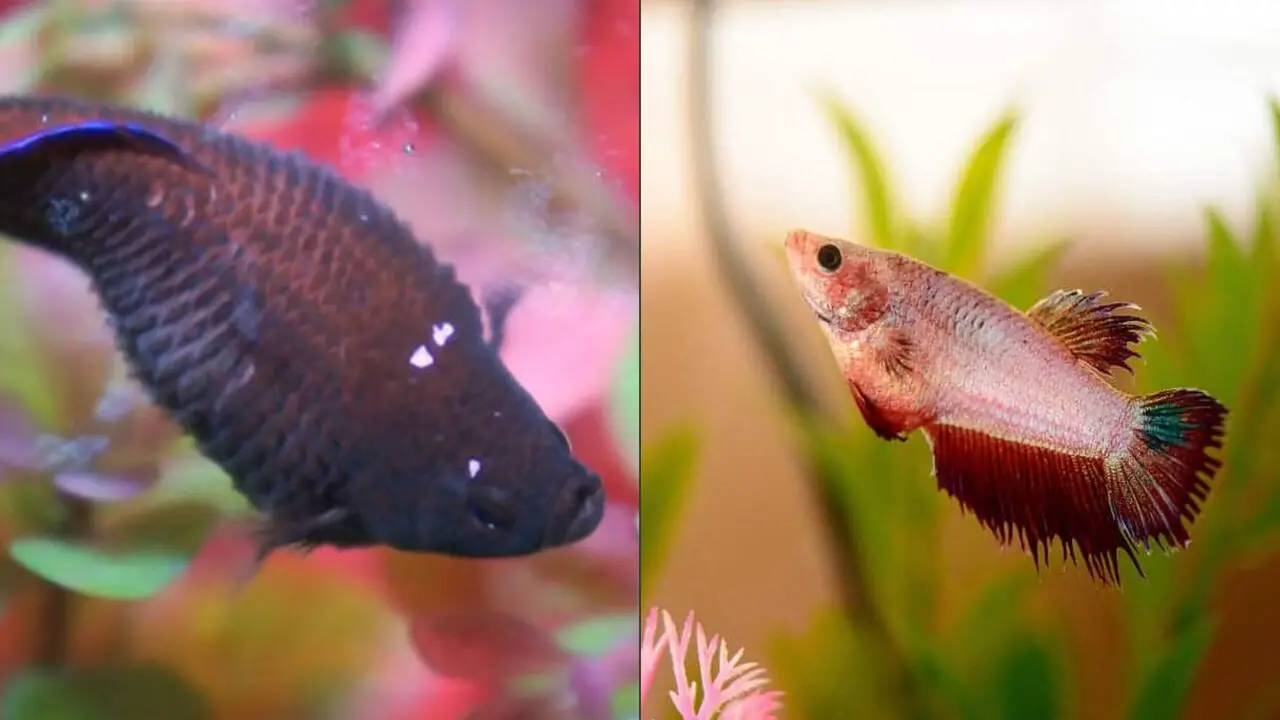
Distinguishing between a bloated betta vs dropsy is crucial for proper treatment. One way to differentiate between the two is to observe the fish’s appearance. Bloated Bettas typically have a rounded stomach, while dropsy causes the fish to bloat all over and may also have pine cone-like scales.
Dropsy can also cause lethargy in the fish. If you suspect your Betta has dropsy, seeking immediate antibiotic treatment is essential, as it can be fatal if left untreated. On the other hand, treating a bloated Betta involves fasting, eating smaller portions of food, and adding Epsom salt to their water. It’s always best to consult a veterinarian or an experienced fish keeper for proper diagnosis and treatment.
Symptoms Of A Bloated Betta Fish
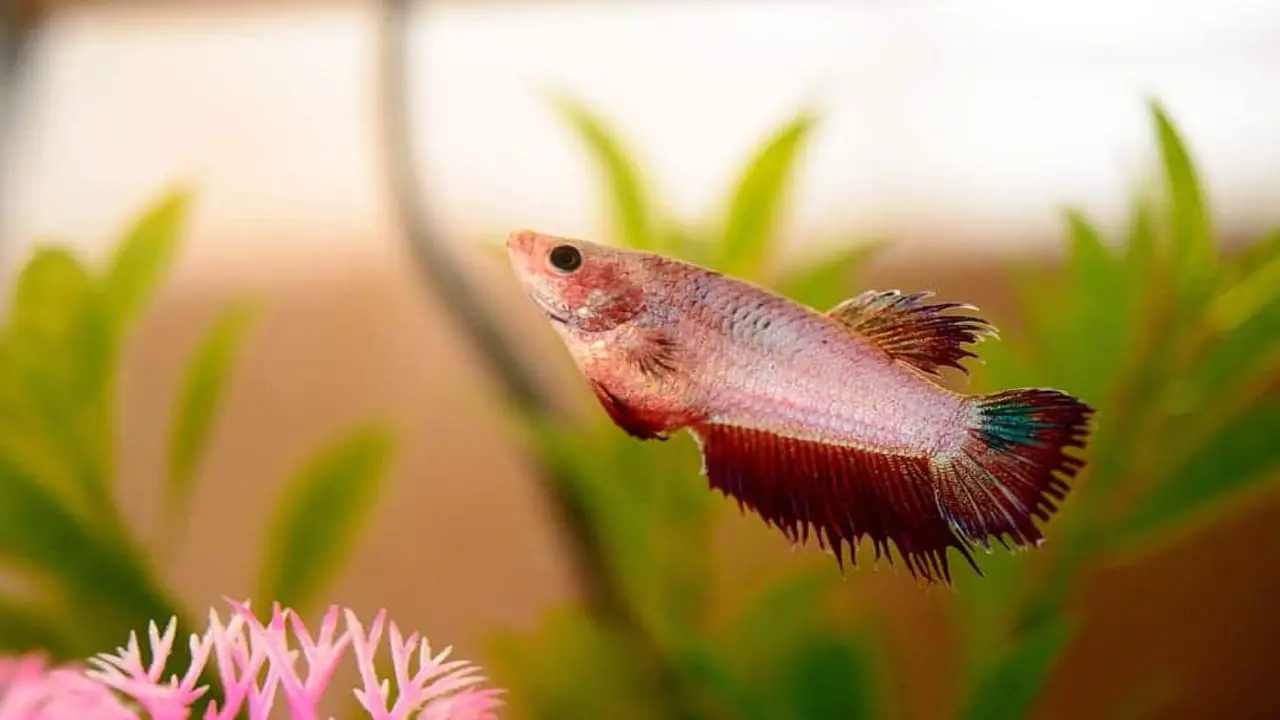
A bloated abdomen is the most common symptom of a betta fish experiencing bloating. The fish may also appear sluggish, resting more at the bottom of the tank. Another indication is a loss of appetite, with the fish refusing to eat or only nibbling at their food. Discoloration may occur, with the fish appearing paler than usual or their scales looking dull.
Another sign that your betta fish may be bloated is difficulty swimming due to the extra weight in their abdomen. It’s important to address this issue promptly, as it can be caused by overfeeding or an underlying health condition such as constipation or swim bladder disease.
Symptoms Of Dropsy In Betta Fish
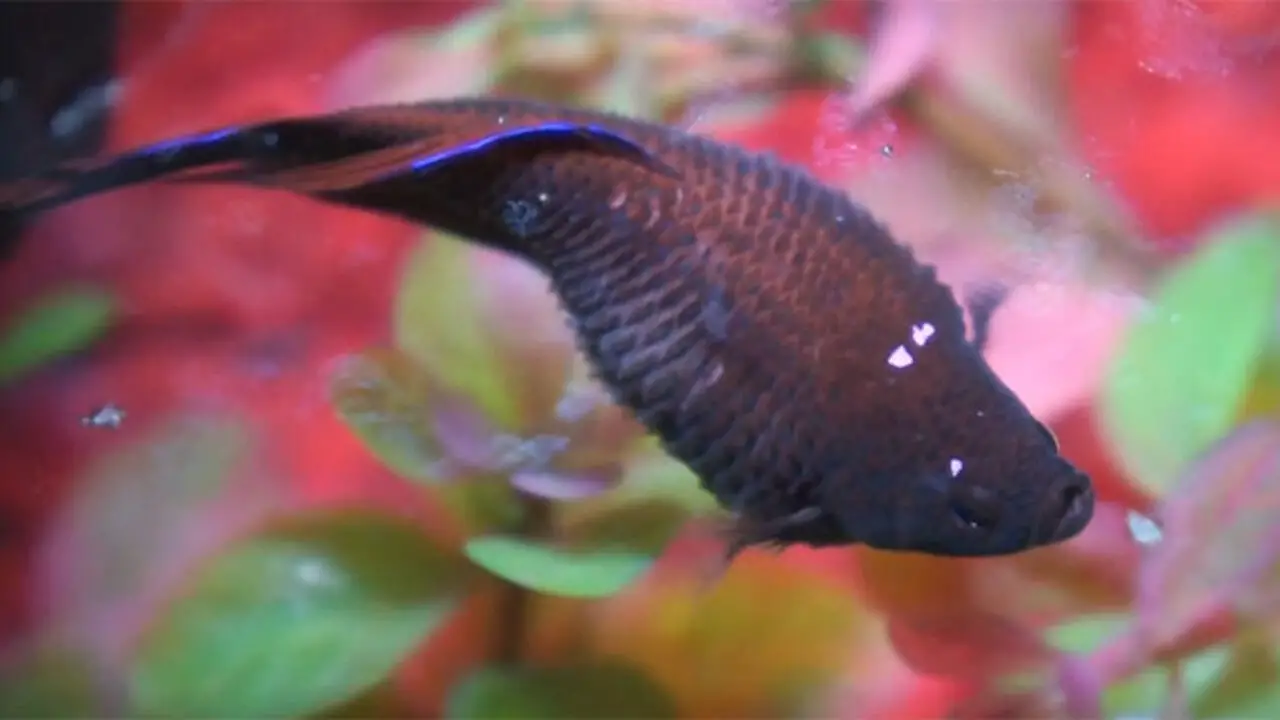
Dropsy in betta fish is characterized by a swollen and bloated body, unlike other illnesses that may only affect certain fish parts. The scales of a betta with dropsy may become raised and protrude outward, resembling a pinecone.
Lethargy is also a common symptom, with the fish appearing sluggish and uninterested in food or swimming. As the bloating increases, it can become difficult for the fish to breathe properly.
Causes Of Bloating In Betta Fish
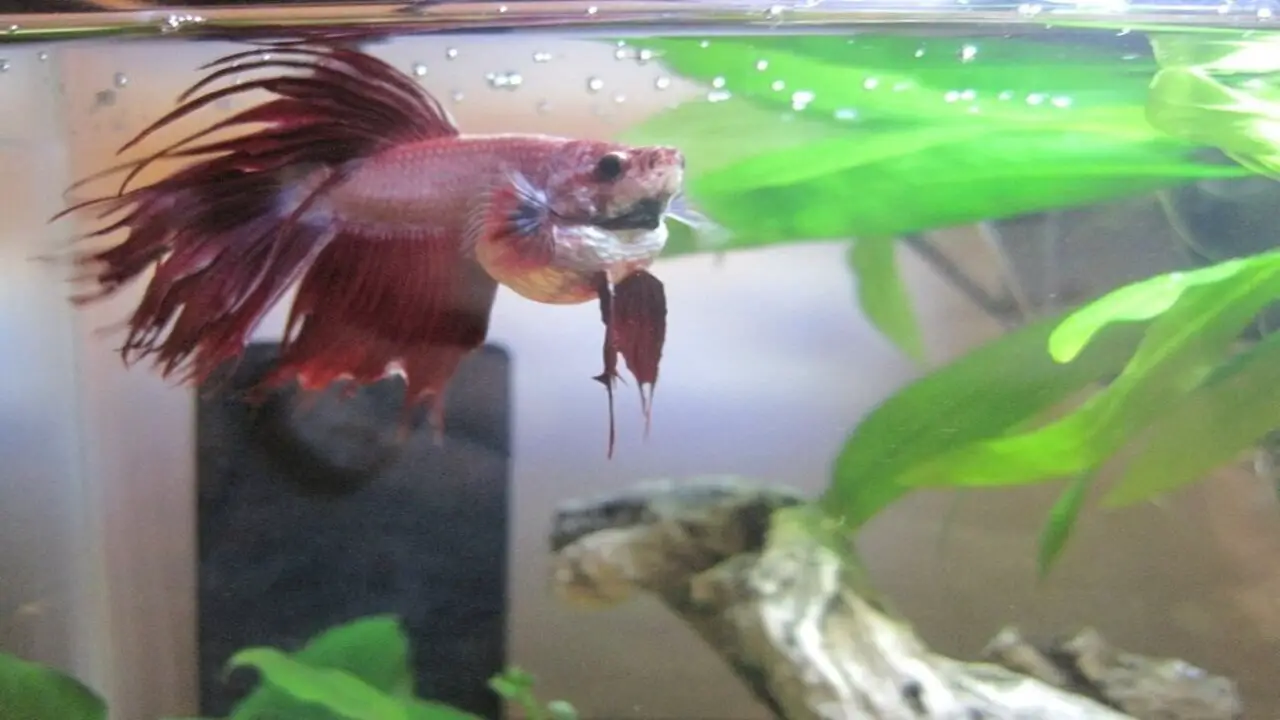
Bloating and constipation are common health issues that can affect betta fish if they are overfed or kept in dirty water with poor quality. Overfeeding can cause bacterial infections, leading to bloating. Betta fish may also accidentally swallow air while eating or swimming, which can cause bloating.
Swim bladder disease is another common ailment that affects the ability of betta fish to maintain buoyancy, resulting in bloating. Parasites are also a potential cause of bloating in betta fish and other aquatic animals. It is important to monitor your betta fish’s diet and water conditions carefully to prevent these health issues from occurring.
Causes Of Dropsy In Betta Fish
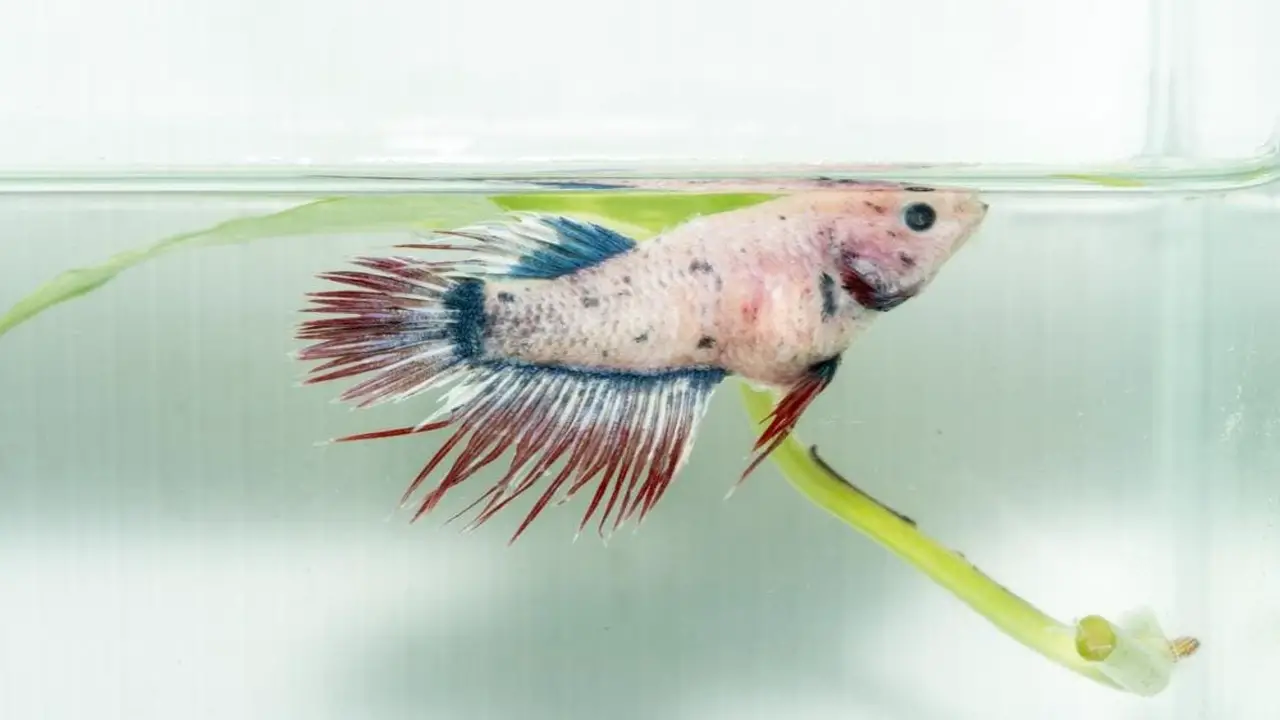
Dropsy is a common health concern for betta fish owners, and it can be caused by various factors such as bacterial infections, poor water quality, and improper diet. It can also be a symptom of underlying health issues like kidney or liver failure.
If your betta fish displays symptoms of dropsy, seeking veterinary care is essential. Additionally, it is important to maintain proper tank maintenance and provide a well-balanced diet to minimize the risk of dropsy. This includes monitoring water quality, feeding appropriate food, and ensuring a healthy environment for your betta fish.
Treatment Options For A Bloated Betta Fish
When treating a bloated betta fish, there are several options available. However, it is important to note that if the bloating is accompanied by other symptoms, such as pinecone or raised scales, it may be a sign of dropsy, which is a serious and often fatal condition. In cases of simple bloating without any other symptoms, some treatment options include:
- Fasting: One of the first steps in treating a bloated betta fish is to withhold food for 24-48 hours. This can give their digestive system a chance to rest and recover.
- Epsom salt bath: Adding Epsom salt to the betta fish’s tank can help reduce swelling and promote bowel movements. Remember to follow the recommended dosage based on the size of the tank.
- Daphnia: Feeding your betta fish daphnia, a type of small crustacean, can act as a natural laxative and help relieve constipation.
- Pea treatment: Some betta owners have successfully fed their fish a cooked and mashed pea (without the skin) to help ease constipation.
- Probiotics: Adding probiotics specifically formulated for fish to your betta’s diet can help promote healthy digestion and prevent future episodes of bloating.
It is important to closely monitor your betta fish during treatment and consult a veterinarian if their condition worsens or does not improve within a few days.
Treatment Options For Dropsy In Betta Fish
When treating dropsy in betta fish, there are several options available. It is important to note that dropsy is a serious condition and can be difficult to treat. However, with proper care and treatment, recovery is possible. Some potential treatment options for dropsy in betta fish include:
1. Isolate the affected fish: If you notice symptoms of dropsy, such as bloating and raised scales, it is important to isolate the affected fish from other tank mates to prevent the spread of infection.
2. Antibiotics: Dropsy is often caused by bacterial infection so that antibiotics may be prescribed by a veterinarian or recommended by a knowledgeable aquarium specialist.
3. Epsom salt baths: Adding Epsom salt to the water can help reduce swelling and improve the fish’s overall condition. Following proper dosage guidelines and monitoring the fish closely during this treatment is essential.
4. Maintaining clean water conditions: Regular water changes and optimal water parameters can help support the fish’s immune system and aid in its recovery.
5. Supportive care: Providing a nutritious diet, including high-quality food and supplements, can help strengthen the fish’s immune system and promote healing.
Remember, it is always best to consult an experienced aquarist or veterinarian for an accurate diagnosis and appropriate treatment plan for your betta fish suffering from dropsy.
Prevention Tips For Bloating In Betta Fish
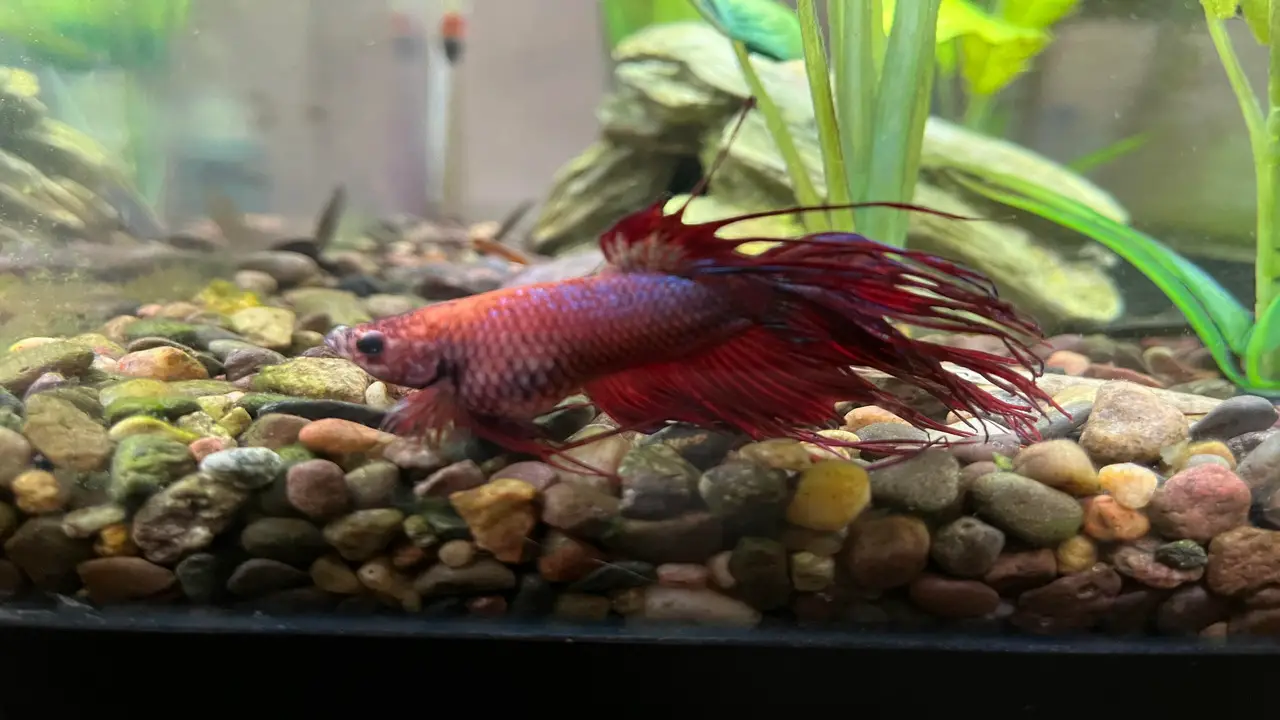
Bloating in betta fish is a common condition that simple steps can prevent. Maintaining a healthy and balanced diet for your betta fish is crucial. Overfeeding can lead to bloating, so feeding them only the recommended amount of food is important.
- Regularly cleaning and maintaining the aquarium is also essential to prevent bacterial growth contributing to bloating.
- Monittank’s water temperature and pH levels are tanked regularly to ensure optimal conditions for your betta fish.
- It is also important to note that different factors like water quality, diet, and genetics can contribute to bloating in betta fish.
- Therefore, monitoring their behavior and appearance regularly is advised so any potential issues can be addressed quickly before they worsen.
Prevention Tips For Dropsy In Betta Fish
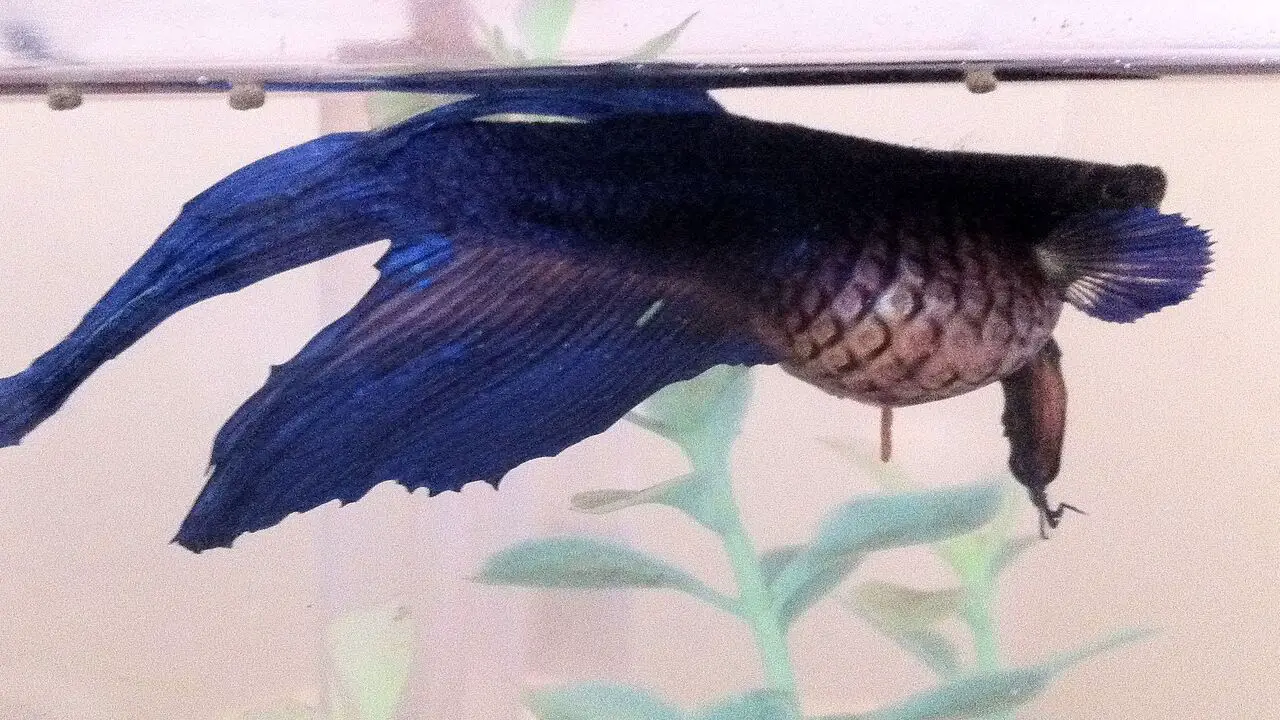
Dropsy is a common ailment that affects betta fish, and maintaining proper water quality is essential to prevent it. Regularly testing the water and changing it as needed can go a long way in keeping your betta fish healthy. Avoid overfeeding your fish, as it can lead to bacterial growth, which can cause dropsy.
It’s also important to quarantine new fish before introducing them to the aquarium and avoid overcrowding. If you suspect your betta fish has dropsy, seek veterinary care immediately. Following these prevention tips can help keep your betta fish healthy and happy for years.
Additionally, adding live plants to the aquarium can help improve water quality by absorbing nitrates and providing oxygen. Ensuring that the temperature of the water remains consistent is also crucial, as fluctuations could stress out your betta fish, making them more susceptible to diseases like dropsy.
How To Determine If Your Betta Has Bloating Or Dropsy
Determining whether your betta has bloating or dropsy is crucial for providing the right treatment. Bloating in bettas is often caused by overfeeding or constipation, while dropsy is a bacterial infection. Bloating symptoms include a swollen belly and difficulty swimming, whereas dropsy symptoms include pinecone-like scales and overall body swelling.
Treating bloating may involve fasting and feeding high-fiber foods. Dropsy, on the other hand, requires medication. Proper care and maintenance can prevent both conditions in bettas. If you’re unsure about your betta’s health, consult a veterinarian or fish expert.
Tips For Keeping Bloated Bettas Healthy
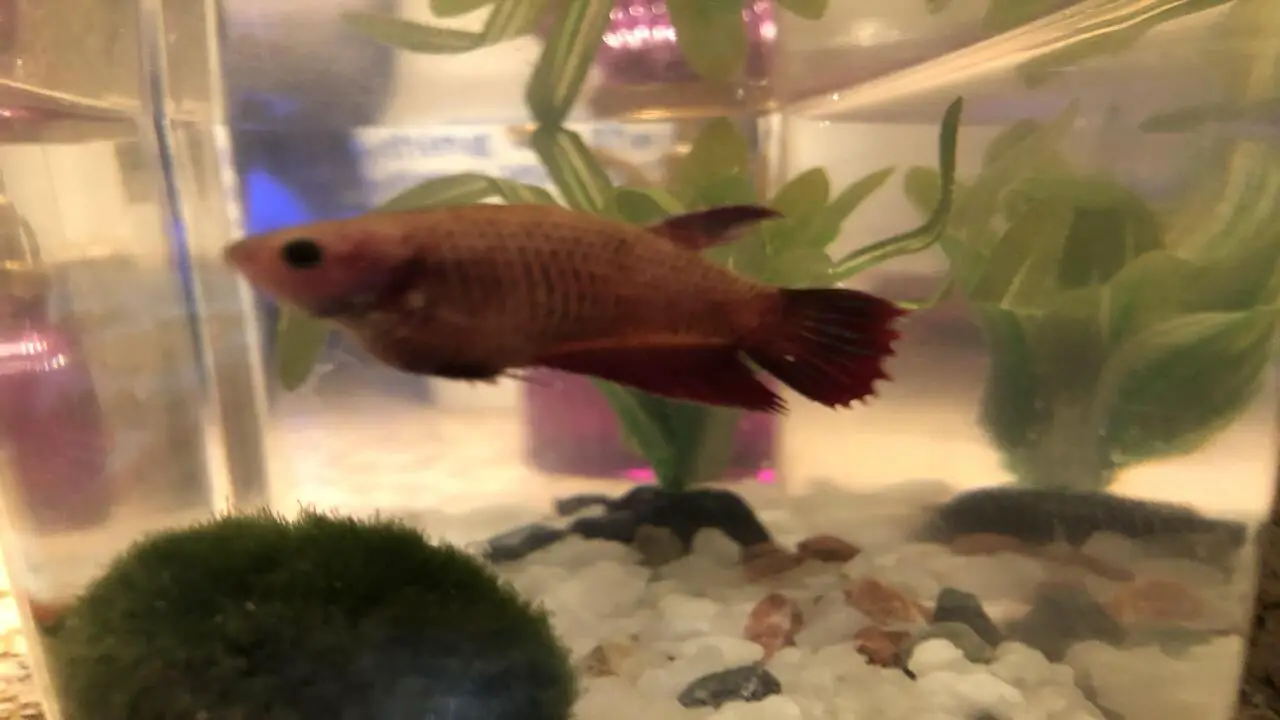
Keeping bloated bettas healthy requires special care and attention. Here are some tips to help ensure the well-being of your fish:
- Monitor their diet: Overfeeding is a common cause of bloating in bettas. Feed them small, frequent meals, and avoid overfeeding.
- Provide a varied diet: Bettas need a balanced diet that includes high-quality pellets, frozen or live foods, and occasional treats like bloodworms or brine shrimp.
- Maintain water quality: Clean water is crucial for betta health. Regularly test the water parameters and perform partial water changes to keep ammonia and nitrite levels low.
- Avoid constipation: Constipation can lead to bloating in bettas. Include fiber-rich foods like daphnia or peas in their diet to promote healthy digestion.
- Prevent stress: Stress can contribute to bloating in bettas. Ensure they have a suitable tank with proper lighting, filtration, and hiding places to minimize stress.
- Consult a veterinarian: If your betta shows persistent bloating or other concerning symptoms, consult a qualified veterinarian specializing in fish health for proper diagnosis and treatment.
Following these tips can help keep your bloated betta healthy and minimize the risk of serious conditions like dropsy.
Tips For Keeping Dropsy Healthy
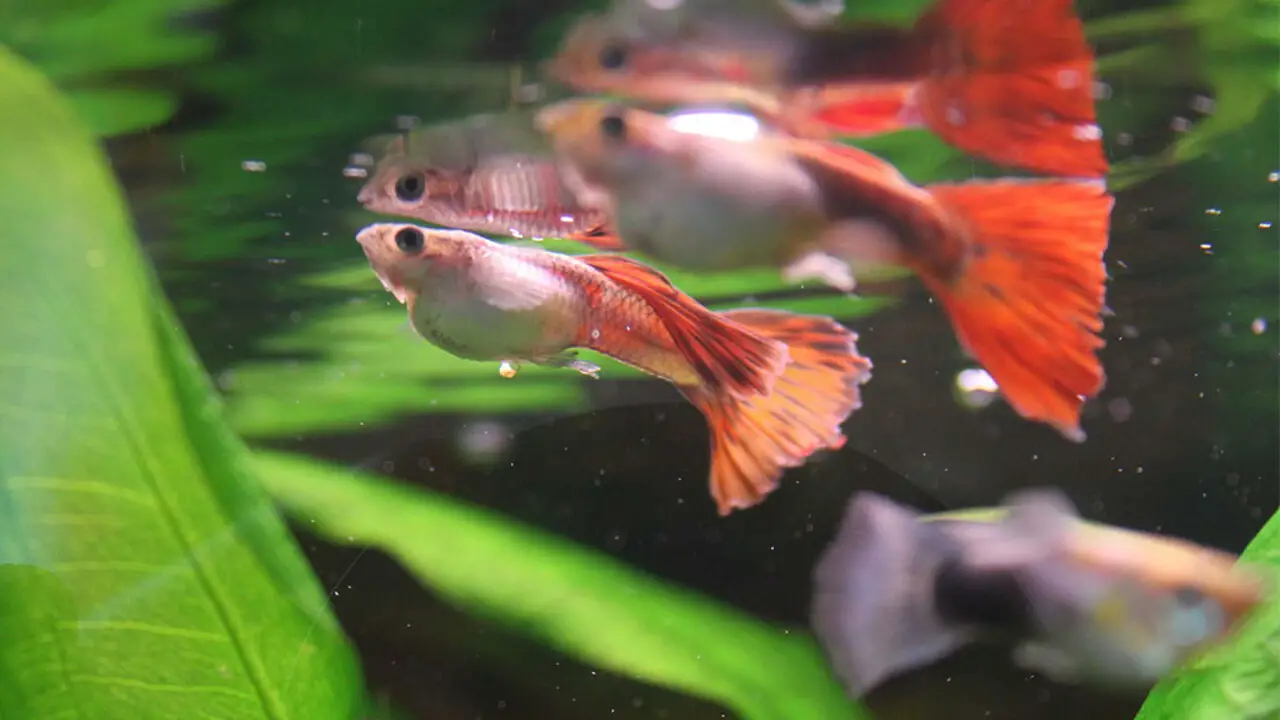
Keeping a betta fish healthy is essential for preventing conditions like dropsy. Here are some tips to help keep your betta fish in good health and minimize the risk of developing dropsy:
- Provide a clean and spacious tank: Betta fish need a clean and properly sized tank to thrive. Regularly clean and maintain the tank, removing any uneaten food or waste.
- Maintain proper water conditions: Betta fish require warm water with a temperature between 78-82°F (25-28°C) and a pH level between 6.5-7.5. Use a reliable water thermometer and test the water regularly to ensure it meets these parameters.
Feed a balanced diet: Nutrition is crucial for betta fish health. Offer them a variety of high-quality pellets or flakes specifically formulated for bettas, supplemented with occasional treats like freeze-dried bloodworms or brine shrimp.Avoid overfeeding: Overfeeding can lead to obesity and other health issues in bettas, including dropsy. Feed them small portions once or twice daily, only giving them what they can consume within 2-3 minutes. - Monitor behavior and appearance: Watch for changes in your betta’s behavior or appearance that may indicate illness, such as loss of appetite, lethargy, bloating, or raised scales. If you notice any concerning symptoms, consult an experienced veterinarian specializing in fish care as soon as possible.
Prevention is always better than cure for dropsy and other fish diseases. By providing proper care and attention to your betta fish, you can help keep them healthy and avoid the onset of serious conditions like dropsy.
Conclusion
Understanding the difference between a bloated betta vs dropsy is crucial. While bloating can be caused by overfeeding, constipation, or poor water quality, dropsy is a symptom of a more serious underlying condition such as organ failure or bacterial infection.
It is important to closely observe the symptoms exhibited by your betta fish and provide appropriate treatment. Maintaining a clean and well-maintained tank, feeding a balanced diet, and regularly monitoring water parameters can help prevent bloating and dropsy in bettas.
Consult a veterinarian or aquatic specialist for accurate diagnosis and treatment options. Your betta’s health and well-being should always be a top priority.
Frequently Asked Questions
How Can I Tell If My Betta Has Dropsy?
Signs of dropsy in betta fish include a swollen belly, raised scales, and lethargy. Detecting dropsy early is crucial as it can be difficult to treat and often fatal. If you suspect a dropsy, isolate the fish and consult a veterinarian or aquatic specialist for treatment options.
Why Is My Betta Fish’s Stomach So Big?
A bloated betta fish may have a larger stomach due to overfeeding, constipation, or an internal infection. However, if the fish’s body is swollen and its scales are raised, it could be a sign of dropsy, a more serious condition. Other symptoms of dropsy include lethargy, loss of appetite, and difficulty swimming. If you notice these signs, monitoring your betta’s behavior and seeking veterinary care if necessary is important.
When Is It Too Late To Treat Dropsy?
If dropsy is left untreated for too long, it can be fatal for the fish. It’s crucial to begin treatment as soon as symptoms appear. Consult a veterinarian or aquatic specialist for the best course of action.
Can I Save My Fish From Dropsy?
Yes, you can save your fish from dropsy with prompt action. Isolate the affected fish and provide a clean environment. Medications may be necessary, supervised by a veterinarian. Prevention is key – maintaining water quality, eating a balanced diet, and avoiding overcrowding.
How Do I Know If My Betta Has Dropsy?
If you notice your betta fish experiencing bloating, scales sticking out, or a pineconing appearance, it may be suffering from dropsy. Dropsy is a serious condition that causes swelling and organ failure. Isolate the fish immediately and seek veterinary care to ensure its health and well-being.

Aquarium passion is all about connecting with the aquatic life and providing education to the public on the importance of these creatures. We showcase a wide variety of marine life through our exhibits as well as working with schools to provide unique learning opportunities for students of all ages.









